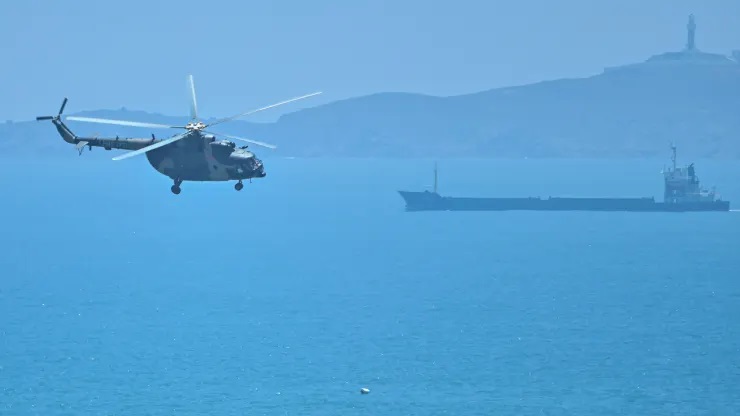Taiwan’s Defense Ministry reported on Friday that it had detected a significant increase in Chinese military activity around the island, with 41 Chinese military aircraft and ships identified in the surrounding waters and airspace. This uptick in military presence occurs just ahead of President Lai Ching-te’s planned stopover in Hawaii as part of a Pacific tour that has drawn sharp criticism from Beijing.
Beijing vehemently contests Taiwan’s self-governance, asserting that the island is part of its territory, and opposes any form of international acknowledgment of Taiwan’s sovereignty. To reinforce its claims, China has escalated its military operations, frequently deploying fighter jets, drones, and warships around Taiwan. This pattern of military activity has intensified significantly over recent years.
In a 24-hour period leading up to 6:00 am on Friday (2200 GMT Thursday), Taiwan’s military detected a total of 33 Chinese aircraft and eight naval vessels in the vicinity. Among these, 19 aircraft were engaged in what China termed a “joint combat readiness patrol” on Thursday evening—marking the highest number of sorties in more than three weeks. Additionally, Taiwan registered sightings of a balloon, the fourth such incident since the previous Sunday, located approximately 172 kilometers (107 miles) west of the island.
Military expert Su Tzu-yun from Taiwan’s Institute for National Defense and Security Research suggested that the increased military presence could signal Beijing’s intentions to conduct larger military exercises in response to Lai’s visit. Lai, who has strongly advocated for Taiwan’s sovereignty, embarks on his first overseas trip since assuming office in May. His itinerary includes brief stops in Hawaii and the U.S. territory of Guam, where he intends to meet with “old friends” while visiting Taiwan’s remaining diplomatic allies in the Pacific.
Taiwanese officials have previously undertaken similar stopovers on U.S. soil during travels to the Pacific or Latin America, often provoking military responses from China, which sees these interactions as a challenge to its claims over Taiwan. In reaction to Lai’s upcoming trip, a spokesperson for the Chinese defense ministry condemned any efforts toward Taiwan independence and vowed to “resolutely crush” such attempts. The spokesman, Wu Qian, stated that China firmly opposes any official interactions involving Taiwan.
Analysts anticipate that China’s military response may hinge on the nature of Lai’s statements while abroad. Lin Ying-yu, a military expert at Tamkang University, indicated that while military exercises might occur, their scale would likely depend on the context of Lai’s discussions, adding that current weather conditions are not conducive to large-scale drills.
President Lai’s visits to the Marshall Islands, Tuvalu, and Palau aim to strengthen Taiwan’s diminishing number of diplomatic allies. Currently, only 12 countries and territories maintain formal diplomatic relations with Taiwan, with some shifting their allegiance to China, which offers more substantial financial incentives. Analysts view this trip as a crucial opportunity for Lai to assert Taiwan’s presence on the international stage and reinforce its quest for recognition as a sovereign state. Mark Harrison, a senior lecturer in Chinese studies at the University of Tasmania, noted that these trips, while sometimes perceived as theatrical, are vital for granting Taiwan a voice in global affairs, providing legitimacy, and imparting an impression of sovereignty.





